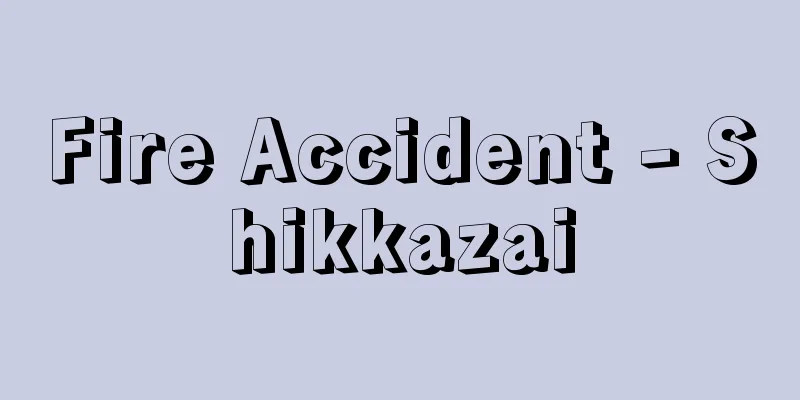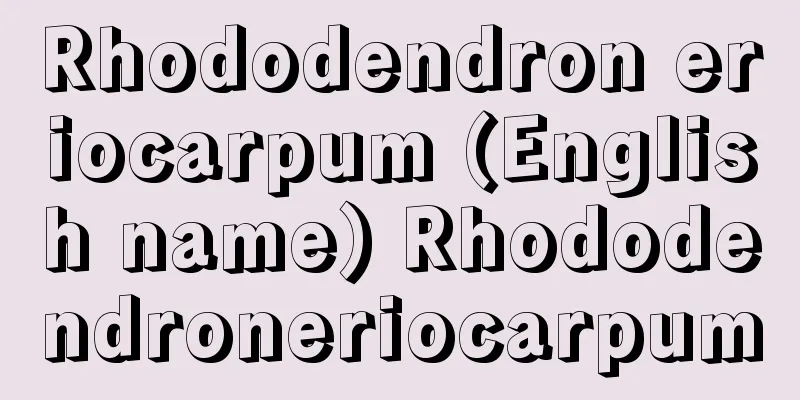Fire Accident - Shikkazai

|
The crime of causing a fire through negligence and creating a public danger. The crime of negligence is a type of arson in the broad sense, and is basically a crime of public danger, that is, a crime that creates danger to the life, body, and property of an unspecified or large number of people, but at the same time, it is also considered to be a property crime. There are three main types of crimes in the current Criminal Code: (1) the crime of negligently burning an inhabited building or a non-inhabited building owned by another person (Article 116, paragraph 1), (2) the crime of negligently burning a non-inhabited building owned by oneself (Article 116, paragraph 2), and (3) cases where the crimes (1) and (2) are committed through professional negligence or gross negligence (Article 117, paragraph 2). Of these, the crimes (1) and (3) are abstract crimes of public danger, and the occurrence of a public danger is assumed if the object is burned, while the crime of (2) is interpreted as requiring the concrete occurrence of a public danger in addition to the burning of the object (prevailing opinion and precedent). Of the crimes of negligence, (1) and (2) carry a fine of up to 500,000 yen, but (3) is a crime of professional negligence and a crime of gross negligence that carry a severe penalty (imprisonment for up to three years or a fine of up to 1.5 million yen), and the definition of "professional duties" in the crime of professional negligence is a frequent issue. Case law has interpreted "professional duties" to include not only work that directly involves handling fire, but also work that involves the risk of fire and work to prevent the detection of fire. However, housewives and smokers use fire on a daily basis, but do not do so based on their "social status," and therefore do not fall under the category of "professional duties" referred to here. In addition, in cases where a large number of people are killed or injured as a result of professional negligence, as is often the case in fires in hotels, department stores, and hospitals, most precedents have been limited to holding the perpetrator responsible only for professional negligence resulting in death or injury (Article 211 of the Penal Code), but academic theory generally holds that the crime of professional negligence resulting in death or injury may also be established. [Tetsuro Nawa] [Reference] |Source: Shogakukan Encyclopedia Nipponica About Encyclopedia Nipponica Information | Legend |
|
過失により火災を発生させ、公共の危険を生じさせる罪。失火罪は広義の放火罪の一種であり、基本的には、公共危険犯、すなわち、不特定または多数人の生命・身体・財産に対し危険を生じさせる罪であるが、同時に、財産犯的性格も考慮されている。現行刑法には大きく次の3類型がある。すなわち、(1)過失によって現住建造物または他人所有の非現住建造物を焼損する罪(116条1項)、(2)過失によって自己所有の非現住建造物を焼損する罪(同条2項)、(3)業務上の過失または重大な過失によって(1)、(2)の罪が行われる場合(117条の2)、がそれである。このうち、(1)および(3)の罪は、抽象的公共危険犯であり、目的物の焼損があれば公共危険の発生が擬制されるのに対して、(2)の罪では、目的物の焼損に加えて、公共危険が具体的に発生することを要するものと解されている(通説・判例)。 失火罪のうち、(1)、(2)は50万円以下の罰金であるが、(3)の業務上失火罪と重過失失火罪とは、とくに刑が重く(3年以下の禁錮または150万円以下の罰金)、なかでも、業務上失火罪における「業務」とは何かがしばしば問題となる。「業務」につき、判例は、火気を直接取り扱う業務のみならず、発火の危険を伴う業務や火災の発見防止の業務も、これに含まれると解している。ただ、家庭の主婦や喫煙者などは、日常的に火気を用いるが、「社会生活上の地位」に基づいて行っているわけではないから、ここにいう「業務」にはあたらない。 なお、ホテル、デパート、病院における火災にしばしばみられるように、業務上失火により多数を死傷させる場合、判例は業務上過失致死傷罪(刑法211条)のみの責任を問うにとどまるものがほとんどであるが、学説では、業務上失火罪も成立しうると解するのが一般である。 [名和鐵郎] [参照項目] |出典 小学館 日本大百科全書(ニッポニカ)日本大百科全書(ニッポニカ)について 情報 | 凡例 |
<<: Fire Responsibility - Shikkeshikinin
Recommend
Massacre of the Innocents
A story about Jesus' infancy found in Matthew ...
Svoboda, Ludvík
Born: November 25, 1895 in Hroznatyn, Moravia [Die...
Zazen (Zazen)
A Buddhist practice. It is the practice of Zen whi...
Browallia americana (English spelling)
… [Eiichi Asayama]. … *Some of the terminology th...
Right of residence
A concept used to protect the right to live in a h...
Simple printing - Simple printing
Please see the "Light Printing" page. S...
Hattori clan
As descendants of Hattori no Muraji, the Hattori c...
butadiene
C 4 H 6 (54.09). CH 2 =CH-CH=CH 2 . There are two...
Vistun
A place name in the Zagros Mountains in western Ir...
Mihishiro
〘Noun〙 ("mi" is a prefix) A word used to...
Boinae
...A general term for non-venomous snakes in the ...
Oitohoku Line
…Construction began as a railway linking Shinano-...
Autobicycle
...a two-wheeled vehicle equipped with an engine....
Hakubakai
A Meiji period Western-style art group. In Septem...
Kekkonen, Urho Kaleva
Born: September 3, 1900, Pieravesi Died: August 31...









